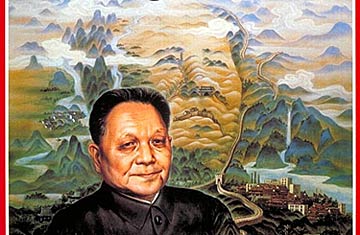
(16 of 20)
In the countryside, the government is reduced to persuasion, propaganda, occasionally coercion. The new "responsibility system," with each peasant gardening his little plot on his own, makes children useful again; they grow up to weed, plant, harvest; above all, to take care of their parents in old age. Peasants who now begin to prosper do not want just one baby; if the first baby is a girl, the matter is very serious indeed — girls go off and get married. Thus, a situation that the Chinese themselves find appalling and the government denounces — the killing of infant girls.
The government hopes education can slow population growth; party units meet with a family expecting a second child and "persuade" the family to end the pregnancy. But some will not be persuaded. In some villages the party requires every woman of child-bearing age to appear every two months for a rabbit test. Some women run away from home until it is too late for an abortion.
Logic lies on the side of the government; the numbers permit no appeal. But love, a formidable counterforce, lies on the side of babies. Even now, China cannot feed its newly swollen cities; 15 million tons of imported grain were needed last year.
There is no internal solution for China except population control. And no external solution except an industrialization effort that could flood the world's markets. The axis of this second thrust is simple: to employ enough of China's surplus population at low enough wages to export Chinese manufactures to earn back from the rest of the world — above all, from America — the food, the timber, the cotton, the edible oils, the meat to keep the people above the starvation line.
China's population is thus not only China's problem but the world's. And so one moves inescapably to China's world view and its sour relations with the U.S.
THREE TROUBLESOME Ts
The American embassy in Peking sums up the Chinese-American confrontation as the three Ts: Taiwan, Technology, Trade. In each of the three there is a different family of interlocking problems; but it is only over the issue of Taiwan that they could lead to gunpoint confrontation.
Taiwan involves pride, the nation's sense of itself. And in China, after a century and a half of foreign humiliations, pride has ulcerated. Chinese are taught a modern history that runs from humiliation to humiliation, an abused pride that exploded in the Japanese war of 1937-45. For the old soldiers who lead the government only one thing is lacking to fulfill their young dream of liberating all China — the liberation of Taiwan, and over Taiwan, Chinese passion boils.
I went to call on one of the old soldiers I had met in Yanan days — Peng Zhen, who after my visit was elected Chairman of the National People's Congress. Burly, bald, still vigorous at 81, he was abused during the Cultural Revolution, confined under house arrest, rusticated. Now, restored to honor, he is a member of the Politburo again, just a notch below the six-man Standing Committee. In the Great Hall of the People,
